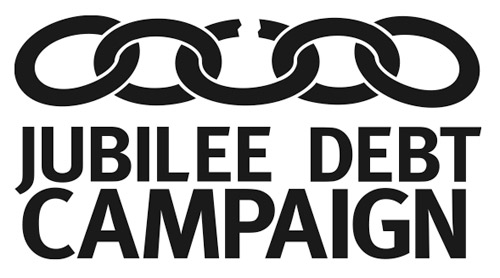And it's coming from a very strange place, too, the Jubilee Debt Campaign. These are the people who tell us that we should just write off the debts of the poor of the world, both countries and people. At times and in places they've certainly got a point but this is still a very strange argument:
A sharp rise in lending to the world’s poorest countries will leave them with crippling debt payments over the next decade, a few years after many had loans written off, a report has warned.The Jubilee Debt Campaign said as many as two-thirds of the 43 developing countries it analysed could suffer large increases in the share of government income spent on debt payments over the next decade.
Coinciding with the World Bank’s annual meeting in Washington, the anti-poverty campaigners accuse the international lender and other public bodies of “leading the lending boom” to poor countries without checking how repaying debts will divert resources from cutting poverty.
What they think they're saying is that we shouldn't be lending these people this money, we should just be giving it to them in the form of grants. What they're actually saying is that the money shouldn't be going there at all. For look at what they do say: money is going to these poor countries, yes, but the returns from it going there aren't enough to pay the interest bill on that money.
Now, we can play all Teenage Trot and shout that so what? But we should perhaps be adult and remind ourselves that prices are information. These loans are already at concessionary interest rates meaning that risk is pretty much disregarded. All that is included in the rate is the time value of money. And if investment in these countries cannot even cover that time value of money then this sort of spending is a really bad thing to be doing. It's value destruction upon a global scale.
Converting it all to grants doesn't change this: investing money in something that cannot even cover the cost of simple interest (not even risk adjusted interest!) is still that value destruction, whether we charge the interest or not.
No, this does not mean that we here think that the poor should be left to fester in their squalor. The above though does mean that simply shipping off money isn't the right way to be going about things: for as we can see no value is being added. The correct answer is that emergency aid should still exist: doesn't really matter where you get your moral precepts from feeding the starving is still worthwhile. However, that developmental aid, that aid that is being wasted simply because it cannot even pay back its own value, should perhaps cease. To be replaced by the one thing that has lifted hundreds of millions, if not billions, up out of poverty in recent decades. We should be buying the things made by poor people in poor countries. And the best thing we could do for those poor is to tear down the barriers we still impose upon ourselves stopping us from doing ever yet more of that.


